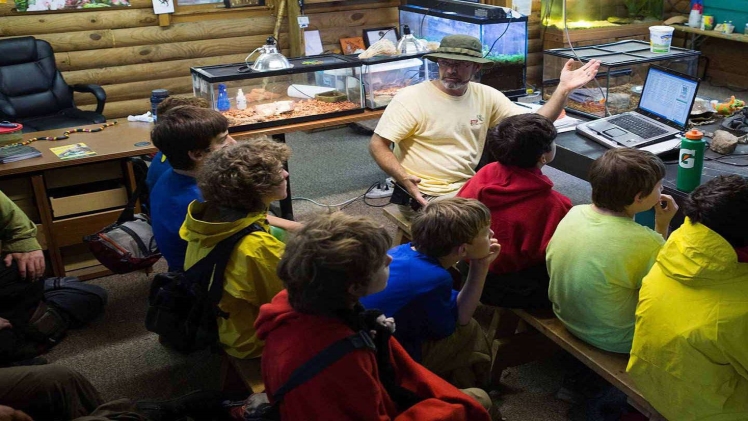Unveiling Trails Carolina: An In-depth Investigation into Troubling Allegations

Trails Carolina, a wilderness therapy program designed to help struggling adolescents, has recently come under scrutiny with allegations of misconduct and mistreatment. In this investigative piece, we delve into the claims surrounding Trails Carolina, shedding light on the accusations, examining the program’s practices, and exploring the broader implications for the troubled teen industry.
I. The Concept of Wilderness Therapy and Trails Carolina’s Mission
Wilderness therapy programs have gained popularity as an alternative approach to helping troubled teens navigate challenges such as behavioral issues, substance abuse, and mental health concerns. Trails Carolina, based in North Carolina, positions itself as a therapeutic intervention where nature plays a central role in fostering personal growth and healing.
A. The Roots of Wilderness Therapy
The concept of wilderness therapy traces its origins to the belief that the great outdoors can serve as a powerful catalyst for personal transformation. Proponents argue that nature immersion can break down emotional barriers, promote self-reflection, and instill resilience in participants.
B. Trails Carolina’s Approach
Trails Carolina follows a comprehensive therapeutic model, combining outdoor activities with individual and group therapy sessions. The program aims to address a range of issues, including defiance, academic struggles, anxiety, depression, and substance abuse, through a holistic and immersive experience in nature.
II. Allegations and Claims Against Trails Carolina
Despite its mission to provide a transformative experience for troubled teens, Trails Carolina has faced serious allegations that have raised concerns about the safety and ethical practices of the program.
A. Physical and Emotional Abuse
Several former participants and staff members have come forward with allegations of physical and emotional abuse within the program. Reports include claims of excessive physical exertion, punitive measures, and emotional manipulation, raising questions about the ethical treatment of vulnerable individuals.
B. Lack of Professional Oversight
Critics argue that Trails Carolina operates with insufficient professional oversight, with concerns about the qualifications of staff members providing therapeutic interventions. The absence of licensed mental health professionals in key roles may compromise the safety and well-being of participants.
C. Inadequate Safety Protocols
Allegations of inadequate safety protocols have also surfaced, with reports of accidents, injuries, and instances where participants’ well-being may have been jeopardized. Critics assert that the program’s focus on wilderness experiences should not come at the expense of ensuring the safety of participants.
III. Exploring the Impact on Participants
The allegations against Trails Carolina raise profound questions about the impact of such programs on the mental and emotional well-being of participants. It is essential to examine the potential consequences of alleged mistreatment and consider the long-term effects on those seeking help.
A. Trauma and Re-traumatization
If the allegations of mistreatment hold, participants may experience trauma and re-traumatization, hindering their ability to benefit from the intended therapeutic interventions. Understanding the psychological implications is crucial in assessing the overall efficacy and safety of wilderness therapy programs.
B. Ethical Considerations in Treatment
The ethical considerations surrounding Trails Carolina’s practices necessitate a broader conversation about the treatment of vulnerable individuals in therapeutic settings. The industry must uphold ethical standards to ensure the well-being of participants and maintain public trust.
IV. Industry-wide Implications and Regulation
Trails Carolina is not an isolated case, and the allegations against it underscore broader concerns within the troubled teen industry. As such, it becomes imperative to address the need for increased regulation, accountability, and transparency in programs offering therapeutic interventions for struggling adolescents.
A. Regulatory Oversight
The troubled teen industry operates with varying degrees of regulation, and the lack of consistent oversight raises questions about the safety and ethical standards across different programs. Advocates call for comprehensive regulatory measures to ensure the well-being of participants.
B. Transparency and Informed Consent
Parents and guardians play a pivotal role in deciding whether to enroll their children in wilderness therapy programs. Ensuring transparency about program practices, potential risks, and expected outcomes is crucial for informed decision-making and obtaining genuine consent.
C. Collaboration with Mental Health Professionals
To enhance the quality of care provided, wilderness therapy programs should collaborate with licensed mental health professionals. Incorporating their expertise into program design and implementation can contribute to a more ethical and effective therapeutic experience.
Conclusion:
The Trails Carolina investigation brings to light the complex challenges and ethical considerations within the troubled teen industry. As the allegations are examined, it becomes clear that a broader conversation is needed—one that addresses the safety, transparency, and ethical treatment of vulnerable individuals seeking help in wilderness therapy programs.
Moving forward, industry stakeholders, regulatory bodies, and advocacy groups must work collaboratively to establish and enforce ethical standards that prioritize the well-being of participants. This investigation serves as a call to action for a more comprehensive and compassionate approach to helping troubled teens, ensuring that therapeutic interventions align with the highest standards of care and ethical treatment.



